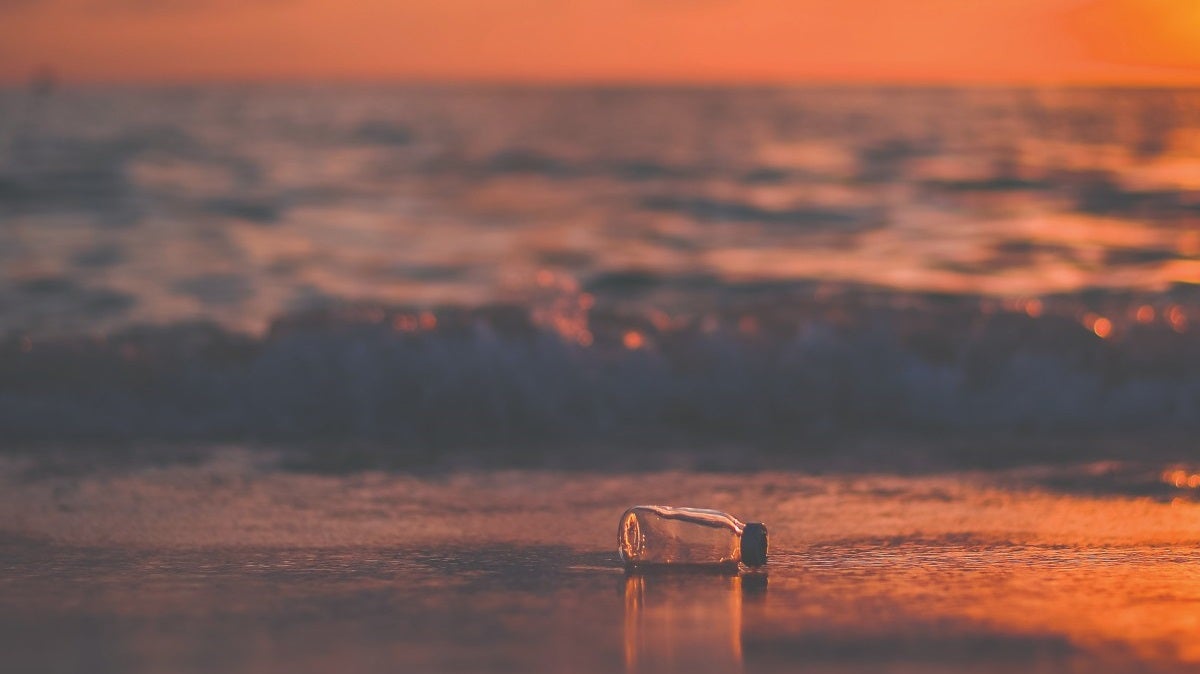In October 2017, David Attenborough framed the plastic pollution problem in a way that woke the world up to the epidemic nature of the issue. His BBC programme successfully defined the problems with our ecosystems, and, while climate change and other environmental issues can be very difficult to grasp, plastic pollution was made a very tangible problem.
As we saw in Blue Planet, the issue of plastics was transformed from theory to hard-to-watch footage of tortoises being caught in plastic packaging and sea horses wrapping themselves around plastic cotton wool buds. As a result of this priceless education, the public rallied behind solving the plastics issue and as the problem became mainstream it seemed to become a lightning rod for environmental activism.
When I came across a technology that could solve the plastics issue, I knew I wanted to dedicate my life to it. Historically, the science is clear when it comes to preventing climate change, as are the solutions; eat less red meat, drive less, fly less and switch the global grid to renewable energy, but a few years ago, when it came to the issue of plastic, there was no silver bullet; no solar energy, and no Tesla. And this intrigued me! I knew there would be a company somewhere working hard in an R&D lab trying to solve the issue. I’ve spent my whole career commercialising solutions to a lot of these big issues, so when I came across a technology, via Polymateria, that could solve the plastics issue by fully biodegrading plastic, I knew I wanted to dedicate my life to it.
Polymateria was founded in 2015 by the grandson of Marks and Spencer’s founder Jonathan Sieff. Jonathan & his business partner Lee set a diverse team of scientists the challenge to create a new technology which could biodegrade plastic avoiding microplastic and not impacting recycling. Many of the technical answers were found by being based at Imperial Innovation in White City, and tapping into the scientific rigour and excellence from a rich and diverse scientific ecosystem around us.
Plastic works too well until it’s no longer needed. We are also able to work with many talented PhD students and the networks that have allowed us to develop a technology that was unprecedented. Plastic as a product ‘works’, perhaps too well; it keeps food dry, stops it from perishing, and is perfect for transportation. Its issue is what happens it at the end of its life. There’s no doubt we need to reduce needless uses of plastic, but for food packaging where plastic alternatives have very serious unintended consequences, we need to come up with solutions that work for the environment. In developing the technology, we were keen to get it right, so that the technology and the process involved didn’t impact recycling in any way.
Our first message at Polymateria is that recycling needs to work, but when it doesn’t, we’ll be the safety net.
32 percent of our plastic leaks into the natural environment. We can also look at the plastics problem through statistics. 32 percent of plastic leaks into the natural environment, and out of this, 2/3 of that 32 percent is single-use plastic. When these leaks happen, we need a back-up plan. The extent of this problem is enormous. It would take 1.6 trillion US dollars to create enough sanitary landfill just to catch the 32 percent of plastic which is leaking into the environment. This will take decades to deploy, mostly in the developing world. I am optimistic about the progress that has been made so far, but I am also reminded of the facts, that only 9 percent of plastic ever made has been recycled.
There is still a long way to go in both innovation and also rallying mass support and commitment to solving this issue. I believe that in order to accelerate progress, there needs to be a three-pronged approach.
Big brands need to authentically engage with their customers. This approach will require brands like Polymateria to continue innovating and large producers and manufacturers to recognise the role they must play. In recognising the role of big brands, their communications need to change, and these brands need to proactively do this through their product messaging on the shelf, innovative campaigns, online orders and any other way they can authentically engage consumers in sustainable consumption without preaching or greenwashing.
If we work with retailers and brands to do this, we will ground the issue and establish it as a problem that affects everyone. We also need to be able to ignite energy at a grassroots level and that emotional connection and desire to do something different, because this will lead to raising the profile of actual brands that are championing the technology. I believe that you have to get this right first and then you create that organic energy and enthusiasm for the technology, which is less ‘cool’ to the general public. That way, consumers will seek out the technology, buy brands that use the technology and direct that energy and momentum to retailers and FMCGs and other smaller challenger brands to make the change.
We’ve created a technology that allows plastic to degrade by a specific date. At its most basic level, we have created a technology that allows plastic to biodegrade, but what is unique about our technology and business is the ability to reconcile the tension between the worlds of recycling and biodegradation. We do this by being able to set the date by which biodegradation happens. This process can be as precise as setting it to a specific month in the future. The reason why this is important is that this extended shelf life of the packaging can be set to give recycling every chance to happen. This idea can be communicated with ease to consumers, using the synergy of a food use-by-date which consumers understand. That way, consumers still feel a responsibility to recycle. We do need to be careful however that we do not become too reliant on this ‘safety net’ as this can negatively impact personal responsibility.
There is a gap between cause and action. You only need to look at places like Glastonbury to see this dichotomy between sustainability messaging and largescale waste; there is a clear gap between cause and action at the moment. In order to navigate this we need to create an emotional connection with the act of recycling.
We’ve seen how an emotional connection can provoke public action and we’ve seen the pace at which the public can get behind issues that are made tangible. As a result, we created the #RecycleBy movement to normalise the concept that with our technology, packaging can have a shelf life. We have had use-bydates since the 1970s and we know that if the produce is going to go off on a Thursday, generally on a Wednesday we start cleaning out the fridge. However, people can be very confused about biodegradability and composability as there is a whole ecolabelling jungle out there and people really don’t know what to do. Therefore, as a brand, we have borrowed from this idea that is usually associated with perishable food and used it in our products. We therefore have the ability to create a call to action through our packaging and we ask consumers to make a pledge to recycle it and if they don’t recycle the packaging by a certain date, then it biodegrades. Just like food.
By 2030 all packaging should have a ‘Recycle By’ date. Looking ahead to making a success of Global Goal 12, I think that the goal more broadly is about the shift from conspicuous consumption, which in a digital world is being fuelled more and more, towards more conscientious, even more collaborative forms of consumption, making it easy for consumers to make conscious choices. There is a space to use the way digital technology is pushing us to purchase for good and as a tool to effect behaviour change in consumer purchases. By 2030 I would expect all packaging in the world to have normalized the concept of a #RecycleBy date. To get there, a technology like ours needs evolving out of being an additive to plastic into actually being a plastic in itself.
This way when you’re producing plastic, our technology is incorporated within the production process. As a result, instead of tens of thousands of plastic products making their way into landfill and ultimately becoming pollutants, the waste can naturally breakdown so that leftover plastic will return to its natural state in an environmentally friendly way.
Niall Dunne is the CEO of Polymateria
Next week: Andy Pharoah, Vice President, Corporate Affairs, Strategic Initiatives & Sustainability at Mars Inc.
- The 2020 Super Year series is a collaboration between freuds, Goals House and Raconteur






